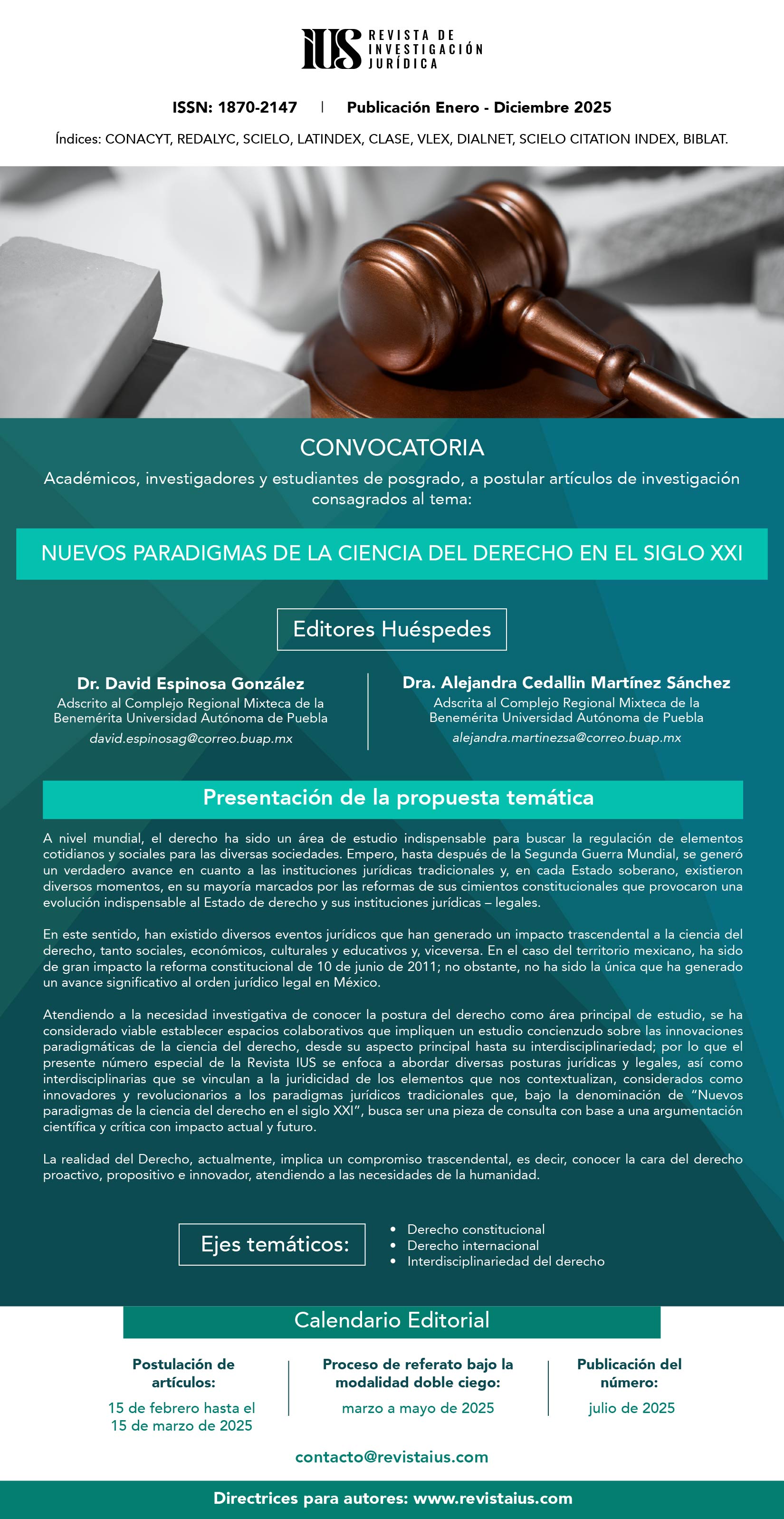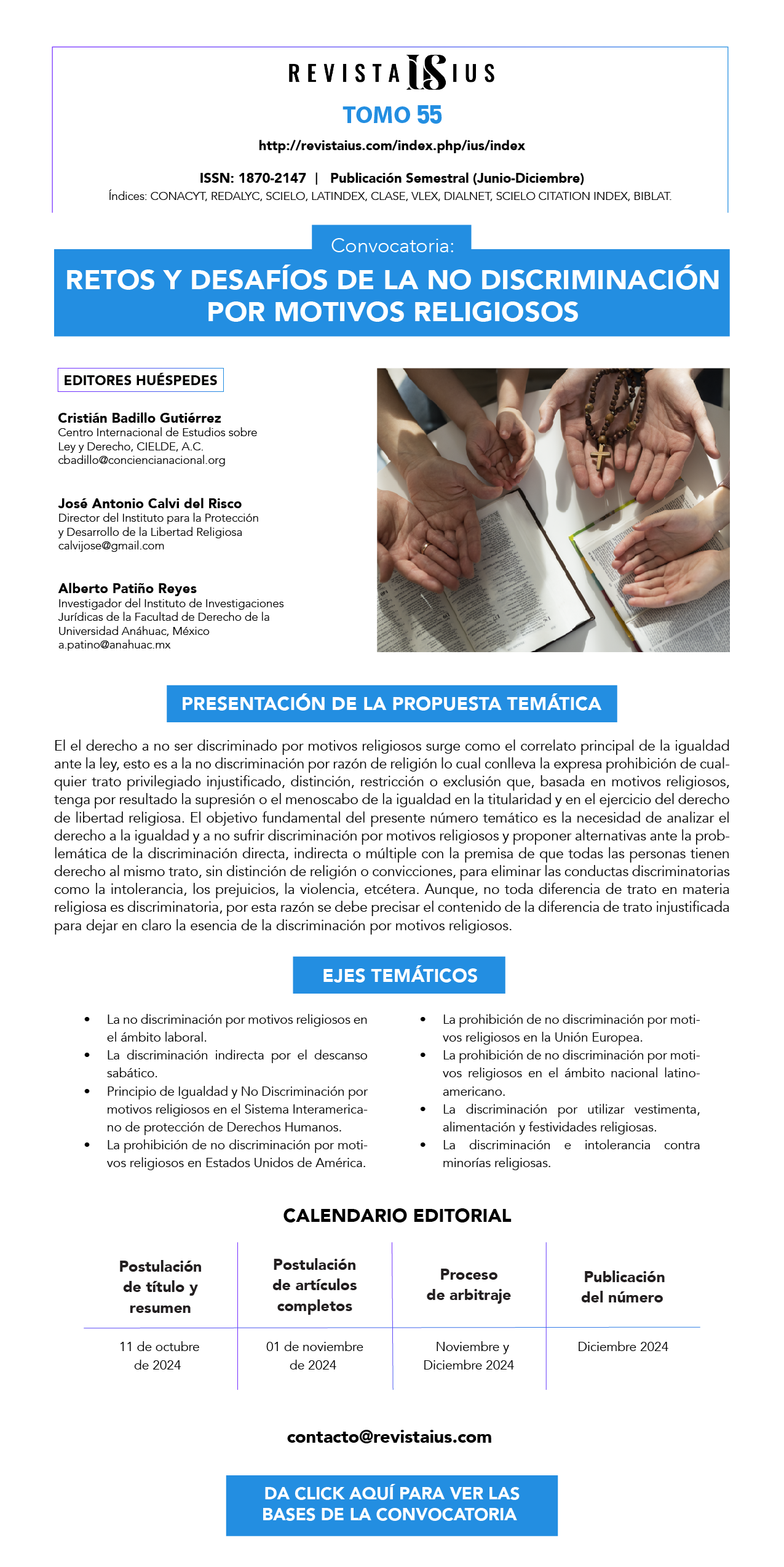Análisis de efectividad de la sentencia T-622/16 ¿Sentencia estructural-dialógica?
DOI:
https://doi.org/10.35487/rius.v16i49.2022.684Abstract
Este trabajo contiene un análisis de la sentencia T-622/16 (10 de noviembre del 2016, M.P.: Jorge Iván Palacios Palacios) de la Corte Constitucional de Colombia que reconoce al río Atrato, su cuenca y afluentes como una entidad sujeto de derechos a la protección, conservación, mantenimiento y restauración a cargo del Estado y las comunidades étnicas. El fallo judicial hace parte de las nuevas líneas de acción de los tribunales constitucionales que pretenden garantizar una justicia ambiental, a partir de dos aspectos centrales: por una parte, la personalidad jurídica de la naturaleza y de sus elementos y, por otra, el deber constitucional de proteger el medio ambiente. Dicho análisis intenta probar que el primero es inapropiado para amparar el entorno natural y sus componentes, mientras que el segundo es adecuado para esto. Precisamente en el segundo aspecto la Corte ordena la implementación de un plan de acción para descontaminar la cuenca y la creación de órganos (comisión de guardianes y un panel de expertos) para garantizar la implementación efectiva y la cesación de la grave vulneración de derechos fundamentales y colectivos. Consideramos que es un fallo estructural en su tipología dialógica.
Downloads
Downloads
Published
Versions
- 2022-06-20 (2)
- 2021-12-08 (1)
Issue
Section
License
Copyright (c) 2021 REVISTA IUS (México)

This work is licensed under a Creative Commons Attribution-NonCommercial-ShareAlike 4.0 International License.
Revista IUS, published by the Legal Sciences Institute of Puebla A.C., is distributed under the Creative Commons Attribution-NonCommercial 4.0 International (CC BY-NC 4.0) license.
We authorize collaborators to upload a copy of their published work on their personal websites or any Open Access repository, provided that Revista IUS is specifically cited as the original source, indicating the year and issue of the respective example and adding the link to the webpage on which this publication can be freely consulted in toto and without charge: http://www.revistaius.com
Readers are free to:
Share, copy and redistribute the material via any medium or format.
The licensor cannot revoke these freedoms as long as you follow the license terms.
Under the following terms:
Attribution: You must give appropriate credit, provide a link to the license, and indicate if changes were made.
You may do so in any reasonable manner, but not in any way that suggests the licensor endorses you or your use.
NonCommercial – You may not use the material for commercial purposes.
If you remix, transform or build upon the licensed material, its distribution is not permitted.
Charges for managing articles: Revista IUS will not charge for receiving, processing or publishing articles (Article Processing Charge, or APC) submitted by authors.





